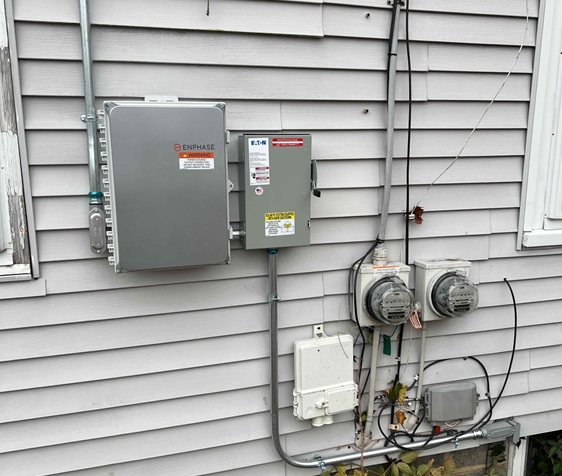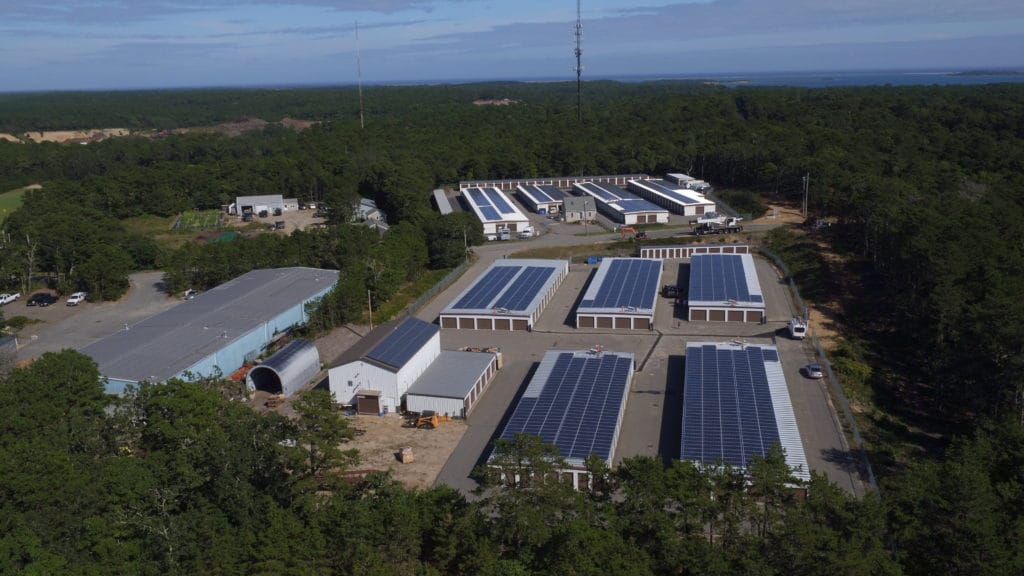Imagine if your car’s odometer could spin backward whenever you coast downhill. That’s essentially what happens with your electric meter when you install solar panels and participate in Massachusetts’ net metering system. While most of us are used to watching our meters tick upward, solar panels can reverse the flow, literally turning back time on your meter as excess electricity is sent back to the grid.
How Net Metering Works in The Bay State
Sunlight is free, but turning it into electricity? That’s where your sleek solar panels come in. During the golden hours of the day, these panels are busy converting sunlight into electrical power. With Massachusetts’ net metering policies, the energy you don’t use immediately gets exported to the grid. This earns you credits, kind of like rollover minutes on an old cell phone plan, offsetting the electricity you consume when the sun isn’t shining.
The excess energy your solar panels generate doesn’t just help you—it also contributes to a broader network that helps stabilize the grid. In fact, California is leading the way with 7.7 GW of virtual power plants (VPPs), made up of distributed solar and storage assets, projected to save consumers billions of dollars by 2035. These VPPs, much like net metering, show how collective solar efforts can significantly reduce grid costs for everyone. Solar installations in New England have saved consumers over $1.1 billion between 2014 and 2019 by lowering electricity prices and reducing demand on the grid.

Massachusetts Rolls Out the Green Carpet for Solar
Here’s how Massachusetts breaks down the various categories of net metering:
- Class I: Up to 25 kWac for homes, 60 kWac for small businesses.
- Class II: Up to 1 MWac—best for larger commercial setups.
- Class III: Up to 2 MWac—tailored for industrial heavyweights.
For Class I solar installations, the credits you earn are like gold—equal in value to what you would pay for the grid’s electricity. So, if your panels are overachievers, your bill could read a thrilling total of $0.
On the other hand, Class II and Class III installations receive credits at 60% of the value of excess kilowatt-hours. Remember, these credits also take into account the various utility service charges—so the bigger your operation, the more complex your credits.
For example, a 692 kW project like Commercial Solar Guy’s installation in Brewster, Massachusetts utilized net metering for 50% of their electricity, saving the business $91,200 each year on the electricity they used in real-time. They also save 60% of that amount—$54,720 per year—from net-metered solar electricity.
For Class I facilities with a maximum inverter size of 25 kWac, the typical annual savings are around $20,000. Most residential solar systems range from 5 to 15 kW, though larger homes may require more capacity. If you own an electric vehicle or a heat pump, you might need to add 2 to 3 kW of inverter capacity to meet your energy needs.
For businesses, a solar power project at the maximum Class I size of 25 kWac can also save around $20,000 a year on electricity. Larger commercial installations, such as Class II facilities with up to 1 MW of inverters, could save approximately $200,000 per year. Class III facilities, which allow for up to 2 MW of capacity, can deliver savings of up to $400,000 annually.
The Future of Net Metering in Massachusetts
While the future may bring widespread use of personal battery storage, net metering will continue to play a crucial role in balancing the grid. This system supports those unable to install solar power directly, ensuring that renewable energy benefits are shared more broadly across communities.
Recent regulatory changes in Massachusetts have further reinforced the state’s commitment to solar energy. The Department of Public Utilities (DPU) has revised the net metering framework, expanding eligibility and introducing significant benefits for various sectors, including municipal and state-owned facilities.
However, even some leading markets—such asCalifornia—are pushing back against net metering due to its perceived costs compared to large-scale solar. Commercial Solar Guy advises business owners to take this threat seriously, as similar political movements could emerge in Boston.
For more detailed information about Massachusetts’ net metering policies and eligibility, you can visit the official Massachusetts Net Metering Guide.

